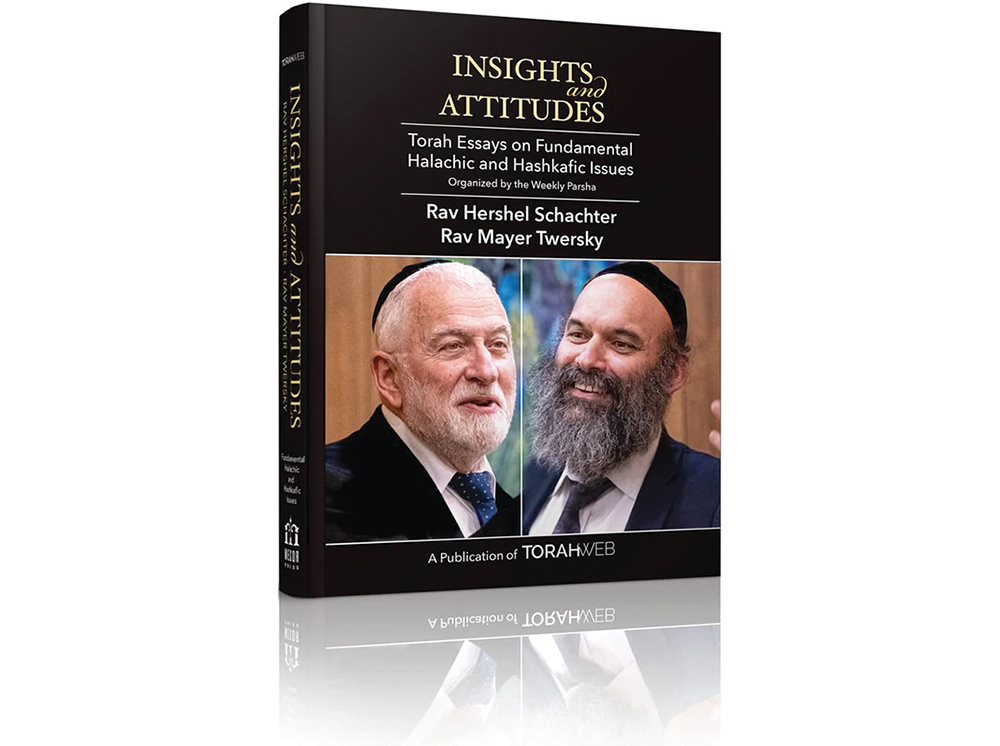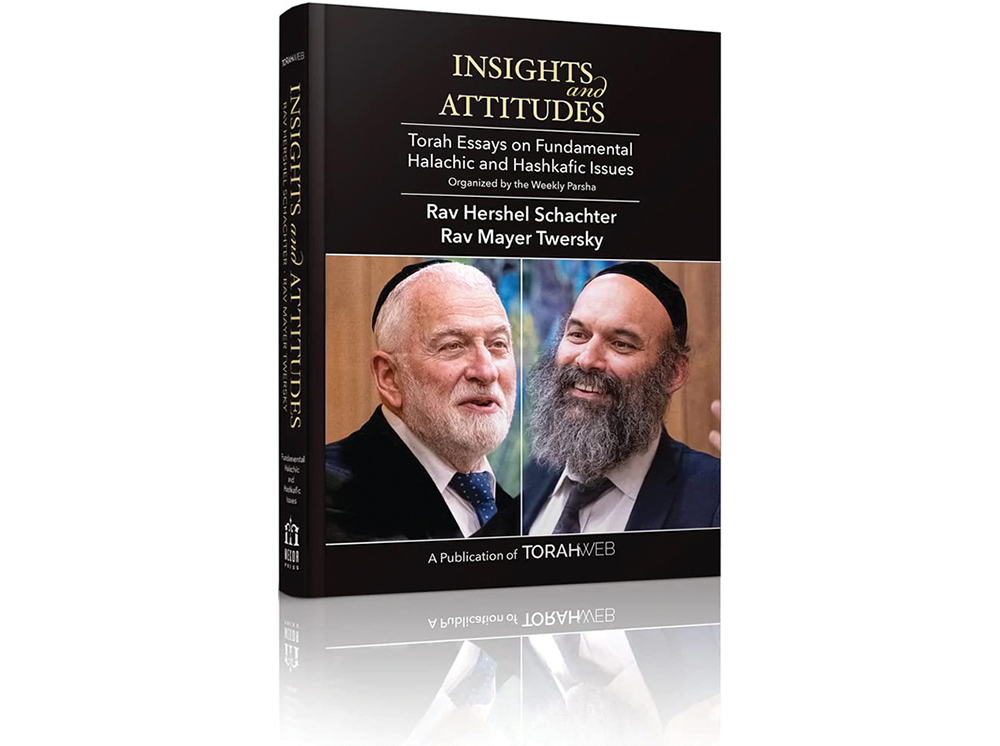
Editor’s note: This series is reprinted with permission from “Insights & Attitudes: Torah Essays on Fundamental Halachic and Hashkafic Issues,” a publication of TorahWeb.org. The book contains multiple articles, organized by parsha, by Rabbi Hershel Schachter and Rabbi Mayer Twersky.
This coming Shabbos, when we read parshas Ki Savo, we will be fulfilling a double mitzvah: (1) We will be reading the parshas hashavua, (2) We will be fulfilling the special takana made by Ezra, i.e., to read the tochacha of Ki Savo soon before Rosh Hashanah (Megillah 31b).
Acharonim point out that it would appear from the Talmud that even when the practice was to have a tri-annual cycle of Torah reading, so that Simchas Torah only occurred once every three years, and parshas Ki Savo did not fall out near Rosh Hashanah, the tochacha would still be read as a special kriah soon before Rosh Hashanah (similar to the reading of parshiyos Zachor and Parah).
In the concluding pasuk of the tochacha (Devarim 28:69), we read that the Jewish people entered into this contract with God in addition to the original agreement (appearing in parshas Bechukosai) that was proclaimed at Har Sinai. The question begs itself: Why was there a need for an additional bris? Why wasn’t the first contract binding?
The answer to this question appears in the Chumash itself in the opening pesukim of parshas Nitzavim. In these pesukim, Moshe specifically indicates that this covenant entered into between Bnei Yisrael and God prior to Moshe’s death involves not only the Jews currently there, but all future generations:
ולא אתכם לבדכם… כי את אשר ישנו פה עמנו עמד היום לפני ה’ אלקינו ואת אשר איננו פה עמנו היום
“Not with you alone … but with whoever is here, standing with us today before Hashem, our God, and with whoever is not here with us today,” (Devarim 29:13-14). This statement implies that the first covenant—which took place at Har Sinai—was only binding between God and the individuals who lived in that generation (Shavuos 39a).
In the text of the tochacha in parshas Bechukosai, the Jewish people are referred to in the plural form because that bris was made with the many individual members of Klal Yisrael. In the tochacha in Ki Savo, however, the Jewish people are referred to in the singular. This “contract” was made with Klal Yisrael, and Klal Yisrael is a single entity which includes all of the Jews who lived throughout all generations, starting from the trip of Avraham Avinu until yemos haMashiach.
The fact that all the souls were present at ma’amad Har Sinai had an effect on all of us in a supernatural way. בעבור ישמע העם בדברי עמך וגם בך יאמינו לעולם— “So that the people will hear as I speak to you, and they will also believe in you forever,” (Shemos 19:9), ובעבור תהיה יראתו על פניכם לבלתי תחטאו—“So that awe of Him shall be upon your faces, so that you shall not sin” (Shemos 20:17).
But this was not enough to make the Torah laws legally binding on all future generations. After 40 years of traveling in the desert, we finally became a nation. When the Jews crossed over the Jordan and entered Eretz Yisrael, they completed this second bris. The bris began with Moshe Rabbeinu at Arvos Moav and was completed by his successor, Yehoshua bin Nun, at Har Gerizim and Har Eival. According to the Talmudic tradition (Sanhedrin 43b), the principle of כל ישראל ערבים זה בזה—“All Jews are responsible for each other” did not begin to function until this bris was completed. That was when we became a nation.
In every generation, there are individuals who choose not to keep the mitzvos. These people want to “be themselves” and “do their own thing.” The truth of the matter is that whether we like it or not, we are all part of Klal Yisrael. Keeping the mitzvos is “the natural thing” to do. When one chooses not to keep mitzvos, he is running away from his real self.
Every day in our prayers, we mention the words of the prophet:
ואני זאת בריתי אותם אמר ה’ רוחי אשר עליך ודברי אשר שמתי בפיך לא ימושו מפיך ומפי זרעך ומפי זרע זרעך מעתה ועד עולם
“‘And as for Me, this is My covenant with them,’ says Hashem, ‘My spirit which is upon you and My words that I have placed in your mouth will not be withdrawn from your mouth, nor from the mouth of your offspring nor from the mouth of your offspring’s offspring,’ said Hashem, ‘from this moment and forever,’” (Yeshayahu 59:21). God has imposed His “bris” upon us. The Navi did not say, “Brisi itam—My contract with you,” but rather, “Brisi osam—i.e., My bris is hereby being imposed upon you.” You can never run away from the Torah. Even if for a generation or two people leave the Torah, ומפי זרע זרעך מעתה ועד עולם
Ultimately, the later generations will have to return. It is the natural thing to do. It will have to happen. The Rambam (Hilchos Teshuva 7:5) points out that the Torah has already promised us that, ultimately, the Jewish people will have to do teshuva. All the future generations are part of knesses Yisrael which entered into the second bris with Hashem.
Ezra’s enactment, takana, requires that we review this national commitment—as contained in the bris in Ki Savo—every year prior to Rosh Hashanah. Whether we like it or not, this is part of our genetic composition. We are all part of Klal Yisrael, carrying on in that ancient tradition from Avraham Avinu. We must act in accordance with who we really are.
Rabbi Hershel Schachter joined the faculty of Yeshiva University’s Rabbi Isaac Elchanan Theological Seminary in 1967, at the age of 26, the youngest Rosh Yeshiva at RIETS. Since 1971, Rabbi Schachter has been Rosh Kollel in RIETS’ Marcos and Adina Katz Kollel (Institute for Advanced Research in Rabbinics) and also holds the institution’s Nathan and Vivian Fink Distinguished Professorial Chair in Talmud. In addition to his teaching duties, Rabbi Schachter lectures, writes, and serves as a world renowned decisor of Jewish Law.











